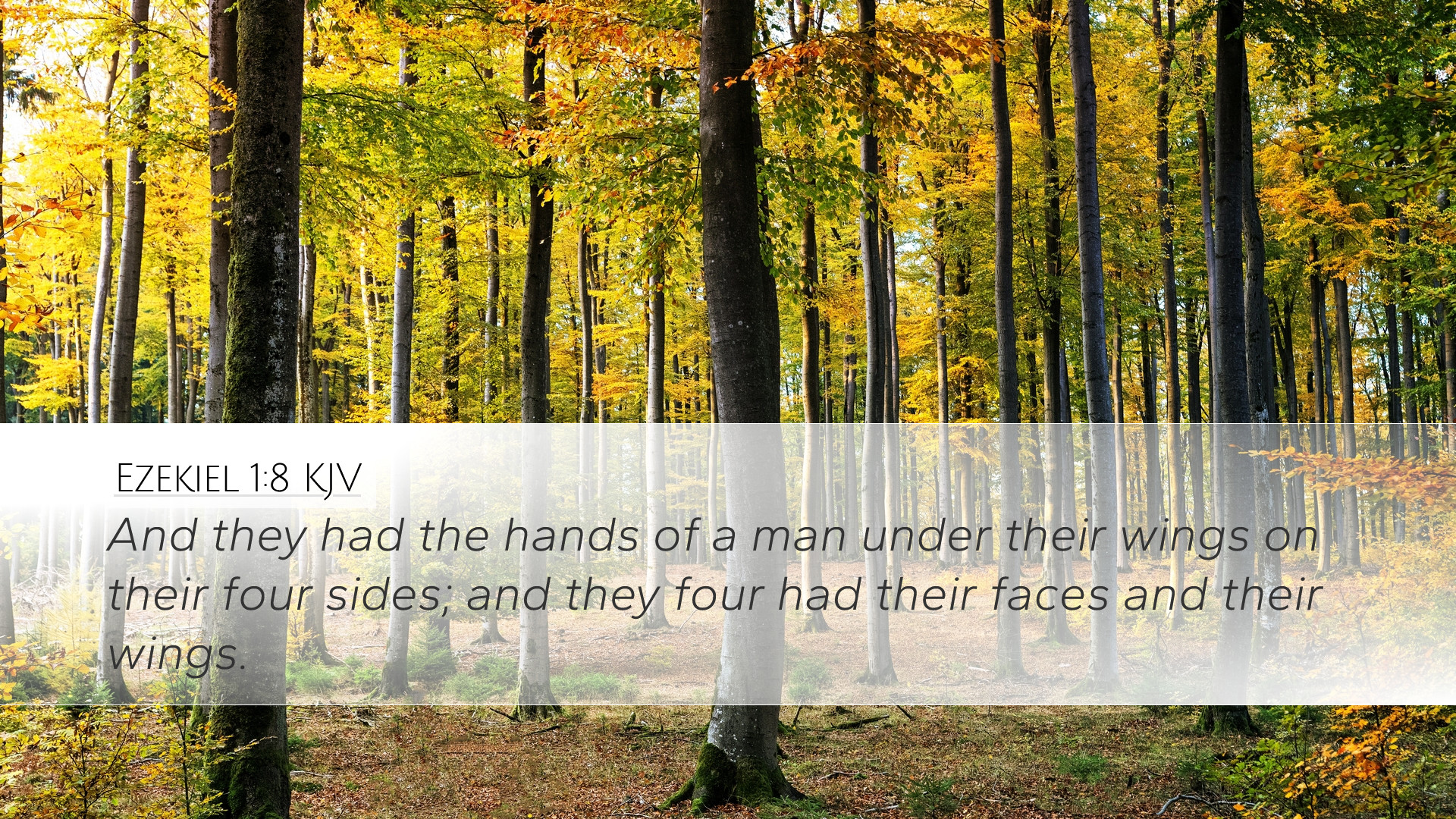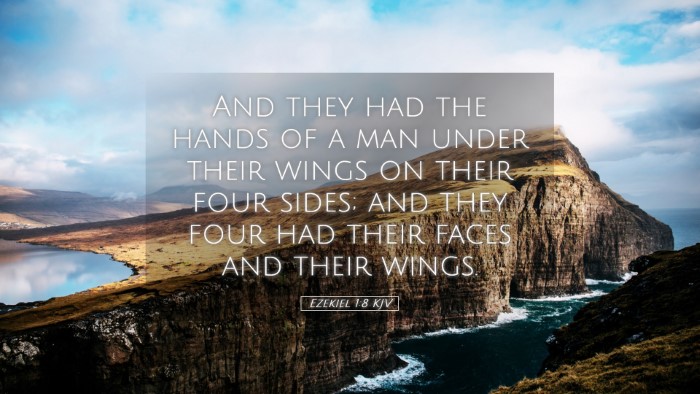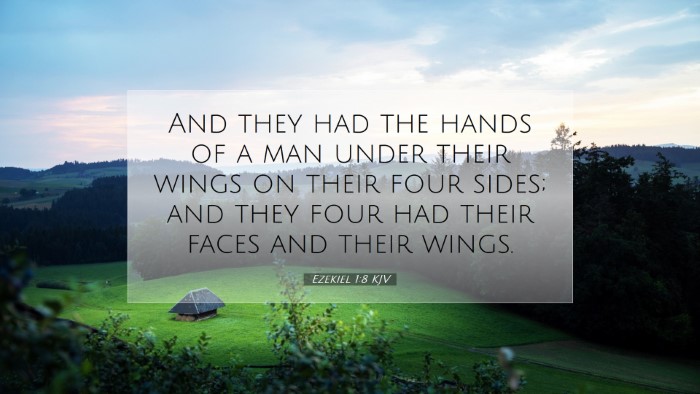Commentary on Ezekiel 1:8
Ezekiel 1:8 states: "And they had the hands of a man under their wings on their four sides; and they four had their faces and their wings." This verse is part of Ezekiel’s vision of the glory of God, which introduces the profound complexities of God's divine presence and the celestial beings around Him.
General Overview
Ezekiel, a prophet during the Babylonian exile, presents a rich tapestry of imagery in Chapter 1 that speaks to both the nature of God and the ministry of prophets. This verse highlights the notable characteristics of the living creatures—often referred to as cherubim or living beings—providing a glimpse into their structure and function within the heavenly realm. The mention of "hands of a man" signifies not only the creature's humanoid aspect but also their active role in the execution of divine plans.
Exegesis from Prominent Commentators
-
Matthew Henry:
Matthew Henry emphasizes the symbolic nature of the living creatures. He notes that the hands of a man under the wings reflect a dual aspect of these beings—both their strength and their service. The hands, commonly associated with action and power, suggest that these celestial beings are agents of God's will. They are not static; instead, they serve to carry out the divine decrees. Henry also points out that the multiplicity of faces and wings signifies the creatures' versatility and readiness to respond to God's command in various capacities.
-
Albert Barnes:
Albert Barnes focuses on the structural elements of the living beings. He examines the implications of the "four sides" referenced in the verse, which might symbolize completeness and universality. The presence of human-like hands could also be indicative of a connection between the divine and human realms, suggesting God's desire for relationship with humanity. Barnes elaborates on the concept of “hands” representing both a sign of labor and intercession, entreating the readers to consider how divine beings interact with the affairs of men.
-
Adam Clarke:
Adam Clarke provides detailed insights regarding the significance of the hands under the wings. He interprets them as a representation of the functional elements of the angelic order engaged in ministerial tasks on behalf of God's people. Clarke also discusses the notion of wings as symbols of swiftness and power, suggesting that the beings possess the ability to execute God’s commands with unparalleled speed. The phrase about their faces reflects the multifaceted nature of their perception—an ability to see in all directions, thus portraying divine omnipresence around the throne of God.
Theological Implications
This verse, while seemingly straightforward, invites deeper theological reflection. The anthropomorphic characteristics of the living creatures serve to bridge the gap between the divine and humanity. They embody attributes of strength, intelligence, and adaptability, resonating with the active and dynamic nature of God’s engagement with creation.
-
The Nature of God’s Presence:
The depiction of God’s throne chariots continually reminds the reader that God is not distant but involved with His creation. The presence of hands indicates His work is performed through intermediaries, thus portraying God's providential care and oversight of human affairs.
-
The Role of Angels:
The vision encourages believers to recognize the complex ministry of angels. They are not merely passive beings but are actively participating in the unfolding of God’s plan, ministering to and for the saints.
-
Human Response:
As humans made in the image of God, Ezekiel's vision also inspires reflection on our own role in divine purposes, urging believers to engage actively in the tasks God assigns. Just as these beings have hands to carry out their duties, so are we to be instruments of God's grace in the world.
Concluding Thoughts
Ezekiel 1:8 serves as a powerful reminder of the dynamic interaction between God and His created order. By understanding the roles and representations of the living beings, pastors, theologians, and scholars can gain profound insights into God’s character, sovereignty, and the call placed upon humanity. The rich imagery of this verse calls for reflection on both the majesty of the divine and the responsibilities entrusted to us as God's representatives on Earth. In contemplating the roles of these celestial beings, we are invited deeper into the mystery of God’s glory and the workings of His kingdom.


